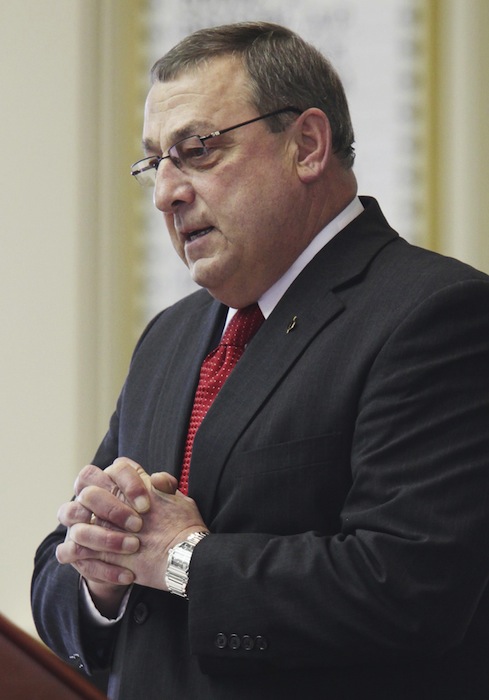AUGUSTA — Supporters of Maine’s law allowing public financing of election campaigns are worried by a portion of Gov. Paul LePage’s proposed budget, which they say would deprive legislative and gubernatorial candidates of funding for 2014.
The budget seeks to cut $2 million in disbursements from the Maine Clean Election fund in each of the next two years, for a total of $4 million.
“The governor’s proposal to kill Clean Elections would ensure that big-money special interests dominate our elections in 2014,” said Andrew Bossie, executive director of Maine Citizens for Clean Elections. “Maine citizens demanded Clean Elections to ensure that government is accountable to voters, not the highest bidding wealthy donors.”
Funding for political campaigns was not a high priority for LePage in drafting a budget in a fiscally challenging environment, said his spokeswoman, Adrienne Bennett.
“This budget, we had to prioritize. Giving welfare to politicians came further down the list from protecting Maine’s most vulnerable people,” said Bennett, and it’s a “false premise that these dollars take the politics out of” campaigns.
LePage, a Republican, ran for governor in 2010 with private funding.
Voters approved the Maine Clean Election Act in 1996, making Maine the first state to adopt public campaign financing. Under the law, legislative and gubernatorial candidates who qualify by collecting the required number of small donations receive public funds for their election campaigns.
The program has been highly popular with candidates from both parties since it was first used, in 2000. As many as 81 percent of legislative candidates have financed their campaigns with Clean Election funds in some years.
The percentage dipped from 77 percent in 2010 to 62 percent in the 2012 elections.
Independent, third-party organizations have spent heavily on behalf of some legislative candidates in recent elections.
The Clean Election Act used to provide matching funds for publicly funded candidates who were targeted by those third-party groups, but the U.S. Supreme Court struck down that provision in 2011.
The ruling in effect took away publicly funded candidates’ ability to access extra cash when their privately funded opponents outspent them.
Bossie said his group will push for legislation this year to address that portion of the law. A similar attempt was rejected by the last Legislature.
“We should be fulfilling the will of Maine people by strengthening our campaign finance laws so voters, not out-of-state special interests, have a greater voice in Augusta,” said Sen. Ed Youngblood, R-Brewer, sponsor of the bill to address matching funds.
Send questions/comments to the editors.


